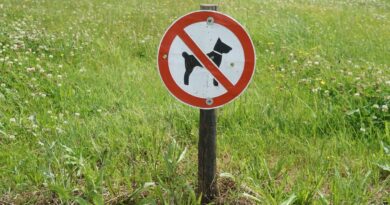Drivers warned to keep conkers in their cars or risk £2,500 fine
As spider season creeps in, UK motorists are being urged to take an unusual step to stay safe behind the wheel: keep a few conkers in the car. Car valuation experts at BigWantsYourCar.com are warning that as temperatures drop, spiders head indoors in search of warmth, with cars offering the perfect hideout.
But the sight of a scuttling eight-legged intruder on a steering wheel or dashboard could cause more than just a fright. It could cost drivers up to £2,500 in fines and nine penalty points for dangerous driving.
A spokesperson for BigWantsYourCar.com explained: “Spiders in cars may sound like a minor irritation but for many drivers they can cause a real fright. If you panic and take your eyes off the road, you put yourself and other road users at risk. Dangerous driving carries serious consequences, both in terms of penalties and safety.”
While most UK spiders are harmless, their sudden appearance can be startling enough to make a driver lose concentration, and the law does not take kindly to distractions. Under the Road Traffic Act 1988, any action that leads to a loss of control or unsafe manoeuvre can count as dangerous driving, regardless of the reason.
That is where conkers, or horse chestnuts, come in. According to old folklore, spiders cannot stand the smell of them, and many motorists swear by stashing a few in their car to keep unwanted passengers at bay.
The BigWantsYourCar.com spokesperson said: “Conkers have long been thought of as a natural spider repellent. While there is no clear evidence that they actually work, many people still keep them in their cars as an extra precaution. If it helps drivers feel calmer and less anxious about spiders, it can only be a good thing.”
The folklore dates back generations, with conkers once placed on windowsills and in corners of homes to stop spiders from coming in during autumn. Scientists have since debunked the myth, saying there is no solid proof that the nuts emit any chemical that deters spiders, but that has not stopped the tradition from sticking around.
Many motorists also turn to natural scents such as peppermint, lavender or citronella to keep spiders at bay, while others swear by regularly cleaning their cars, hoovering floors and vents where spiders might nest.
Still, experts say no amount of conkers or essential oils can replace basic road safety. If a spider does make an appearance while driving, the golden rule is simple: do not panic.
“If you do spot a spider while driving, the safest course of action is to stay calm, pull over somewhere safe and deal with it when you are off the road,” the spokesperson added. “Attempting to remove it while the car is moving is not only unsafe but could also result in fines or penalty points. A short pause could make all the difference.”
The warning comes as autumn marks the peak of spider season, typically lasting from September through early November, when male house spiders become more active while seeking mates. Warmer engines and sheltered footwells make cars an attractive hiding place, especially if they have been parked near trees or hedgerows.
BigWantsYourCar.com’s advice is light-hearted but serious in its message: even small distractions can have big consequences. A startled reaction to a spider might seem trivial, but swerving, braking suddenly, or taking a hand off the wheel can all be classed as dangerous driving.
In the end, whether or not conkers truly repel spiders might not matter. For many drivers, they serve as a comforting charm, a simple, seasonal reminder to stay calm when the creepy crawlies appear.
And as the nights draw in and spider season takes hold, a few shiny horse chestnuts rolling around your dashboard might just help you avoid a scare and a fine.





